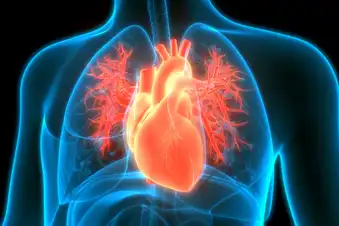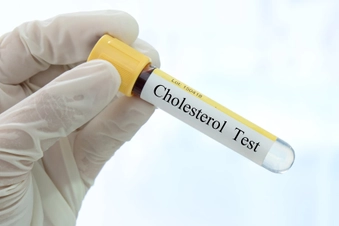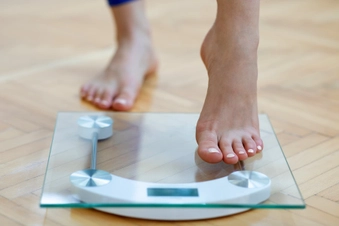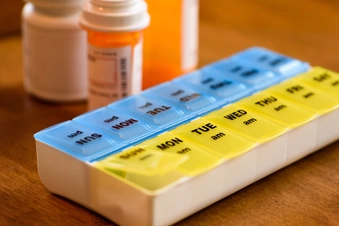Rising Above Heart Failure

Rethink ‘Heart Failure’
"The first thing I say to people diagnosed with heart failure is this: Be reassured that your heart is not failing. The name “heart failure” doesn’t accurately reflect the true definition of this condition, which is essentially that your heart isn’t pumping blood as well as it should. With smart lifestyle choices and treatment, you can live a healthy life." -- Carolyn Thomas, author of A Woman’s Guide to Living with Heart Disease

Be Honest And Open With Your Doctor
"Develop an open relationship with your doctor. We need to know exactly how you’re feeling, how much you can do, and if you’re taking your medicines as prescribed. Being open and truthful helps us understand how you’re doing and make the best treatment decisions. Bring a list of questions to every visit. Ask your doctor if you can start off with your questions so you don’t forget to ask them later." -- Sam Mehta, MD, director of the Cardiac Catheterization Lab at Rose Medical Center in Denver

Keep an Eye on Your Risk Factors
"To gain control as you navigate through this disease, know your risk factors and control them. Keep your cholesterol levels down, keep salt to a minimum, keep your blood sugar under control, stop smoking, cut back on alcohol, and maintain a vigorous exercise schedule. Your providers, family, and friends can act as a team with you to help you live with heart failure." -- Spencer Kroll, MD, director of the Northeast Lipid Association

Exercise to Feel Better
"You may feel tired or run-down, but exercise can help. Mild aerobic workouts like walking help your body use oxygen more efficiently and improve blood flow. Stretching and strengthening exercises are also good. Talk to your doctor about an exercise plan. It’s easier when you have support. Consider a cardiac rehabilitation program, a local gym, or exercising with a friend." -- Christopher Hanifin, chair of the Department of Physician Assistant, Seton Hall University

Watch Your Water
"With heart failure, your body retains fluid, which makes you feel worse and makes your heart work less efficiently. Limit the amount of fluids you drink and how much salt you eat. Take diuretics if your doctor recommends them. Know your body weight and watch for any major weight gain, especially if it happens quickly. Tell your doctors if you notice a change so they can adjust your treatment." -- Jonathan Yang, MD, cardiovascular surgeon, Austin, TX

Make It Easy to Check Your Weight
"Keep a scale in the bathroom to weigh yourself first thing in the morning, and jot it down in a notebook or on your phone. Getting an accurate weight is very important, so be consistent: Use the same scale each day, and make sure you have an empty bowel and bladder before you step on. Call your doctor if you notice a 2- to 3-pound weight gain overnight or 5 pounds in a week." -- Cindy Fritzinger, a registered nurse, chronic care solutions nurse coach, and health advocate

Try Meditation and Tai Chi for Body and Mind
"Meditation connects you to your inner self and may help with anxiety and shortness of breath. It’s easy, and you can do it in a seated position. Yoga breathing helps exercise your lungs and can also be done in a seated position. Tai chi is a slow-moving exercise that combines proper breathing techniques with gentle movement and helps you maintain skeletal muscle tone, flexibility, mobility, and body strength." -- Radha Gopalan, MD, medical director for advanced heart failure and mechanical circulatory support at Banner - University Medicine Heart Institute in Phoenix, AZ

Try a Pillbox and a Timer
"We’re so lucky to have many medications now that help the heart heal and keep you feeling well. But keeping track of all of them can be tough. First, get a pillbox. If you have twice-daily meds, get one with a.m. and p.m. slots. Set a timer to remind you when to take them. Taking them at a set time with another habit you already do, like brushing your teeth, can help you remember them." -- Nicole Harkin, MD, cardiologist and founder of Whole Heart Cardiology in San Francisco
Show Sources
IMAGES PROVIDED BY:
- Magicmine / Getty Images
- stevecoleimages / Getty Images
- utah778 / Getty Images
- Imtmphoto / Getty Images
- Art Wager / Getty Images
- Bymuratdeniz / Getty Images
- kali9 / Getty Images
- Kristen Prahl / Getty Images
SOURCES:
Cindy Fritzinger, registered nurse and health advocate.
Radha Gopalan, MD, medical director for advanced heart failure and mechanical circulatory support, Banner - University Medicine Heart Institute, Phoenix, AZ
Christopher Hanifin, chair, Department of Physician Assistant, Seton Hall University.
Nicole Harkin, MD, cardiologist, founder of Whole Heart Cardiology, San Francisco.
Spencer Kroll, MD, PhD, director, Northeast Lipid Association, Morganville, NJ.
Sam Mehta, MD, director, Cardiac Catheterization Lab, Rose Medical Center, Denver.
Carolyn Thomas, author, A Woman’s Guide to Living with Heart Disease and the Heart Sisters blog, Victoria, British Columbia.
Jonathan Yang, MD, cardiothoracic and vascular surgeon, Austin, TX.